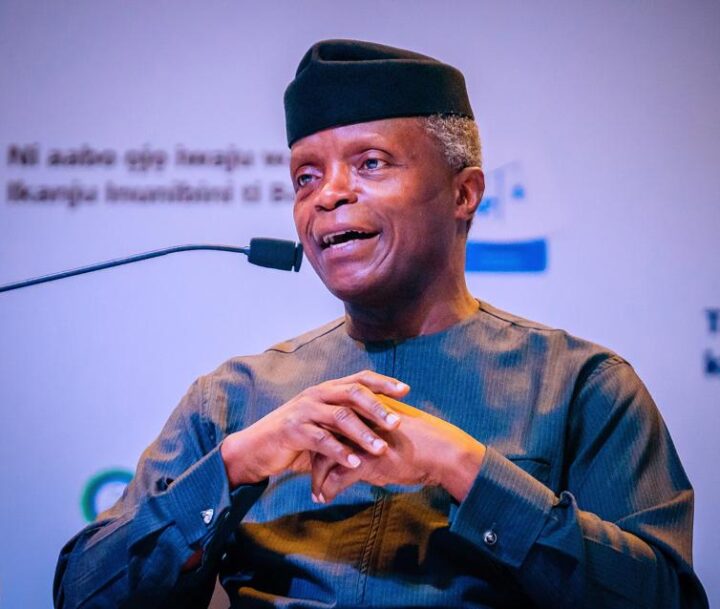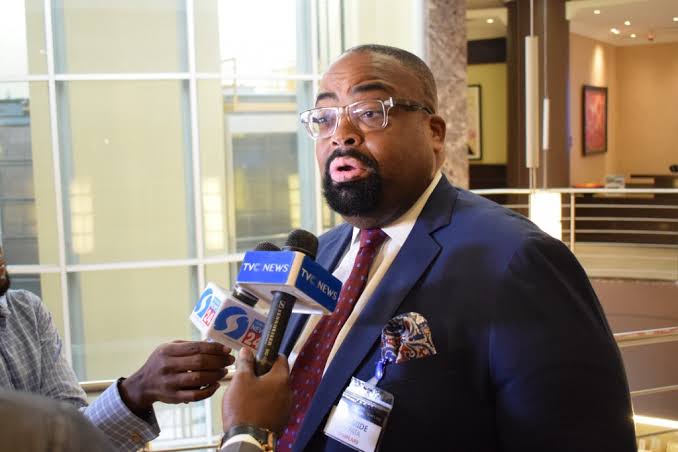Vice-President Yemi Osinbajo says the federal government schemes designed for micro, small and medium enterprises (MSMEs) have deployed N150 billion and impacted over four million businesses in the past five years.
According to a statement issued on Monday by Laolu Akande, his spokesperson, Osinbajo said this while delivering his keynote address at the Bank of Industry (BOI) ‘Aid for Productivity Report’ launch.
The launch chronicled the development, impact, and future of the growth platform schemes executed by BOI, which is used to drive multiple large-scale intervention programmes for MSMEs.
Osinbajo said the administration has also bolstered its support for the MSMEs sector, which accounts for close to 50% of Nigeria’s GDP and 76% of the country’s labour force.
Advertisement
According to the statement, Osinbajo attributed the platform’s success to “the Nigerian can-do spirit and the entrepreneurial DNA we carry”.
“This is a shining case study of what President Muhammadu Buhari strongly believes: that Nigerians will solve Nigeria’s problems,” he said.
“This is an example of what we can achieve when we unleash the best of our people – especially our young – on the toughest of our challenges and give them the free-hand to deliver results.
Advertisement
“This demographic was far too important to ignore. We had to start solving for them, especially having been left far behind historically.
“What might also not be obvious is the sheer scale of impact that has been achieved with these programmes, as over four million Micro, Small and Medium Enterprises have been direct beneficiaries of the over N150 billion deployed in the past five years.
“57% of these MSMEs are owned by Nigerians below 35 years of age, and close to 60% of the beneficiaries are women. What is even less glaring is that the team of Nigerian professionals behind this work is largely young, with an average age of 28 years old.”
The vice-president also narrated his encounter with one of the Tradermoni beneficiaries when he visited Kaduna to launch the scheme in the state.
Advertisement
“Jafar Abubakar, who trades in ginger and garlic, was one of 5,000 or so traders who had just received ₦10,000 to advance his business in that market,” Osinbajo said.
“What struck me was what he said about how he was selected to get the credit.
“He said I just applied. I didn’t know anybody. They came here and captured my data last week, and I got the alert yesterday.”
He added that Jafar then ‘showed me the alert on his phone’.
Advertisement
“Stories like Jafar’s have become all too familiar to me over these years,” Osinbajo said.
“It is a consistent tune I hear as I engage thousands of beneficiaries of our intervention programmes.
Advertisement
“This is perhaps for me one of the most satisfying things about the way our social intervention schemes are deployed. “That there is a platform that can process applications from potential beneficiaries, payout credits or other benefits, maintain auditable records seamlessly.
“It is those people and infrastructure that make this happen that we are celebrating today.
Advertisement
“This is a journey that only began as an idea 6 years ago: that we can build systems that will serve everybody fairly and justly and bring credibility to government programmes.
“One of the biggest barriers we identified was the ability to reach people directly, capture and digitize their information (even if they are illiterate) and process a benefit to them directly in a way that is transparent to all. Our vision set out to solve this.
Advertisement
“For some programmes, the everyday Nigerians were young graduates who would benefit from a direct stipend and employment placement from the government.
“For others, it would be pupils for whom a reliable meal per day would make the difference between staying enrolled in school or skipping school to earn money for that meal.”
Speaking further, Osinbajo commended the infrastructure and transparency behind the BOI Growth Platform schemes.
He also commended Olukayode Pitan, managing director of the BOI, Toyin Adeniji, executive director, and Uzoma Nwagba, the chief operating officer.
Adeniji and Nwagba are the co-authors of the “Aid for Productivity” report, which was formally presented at the launch.
Add a comment






